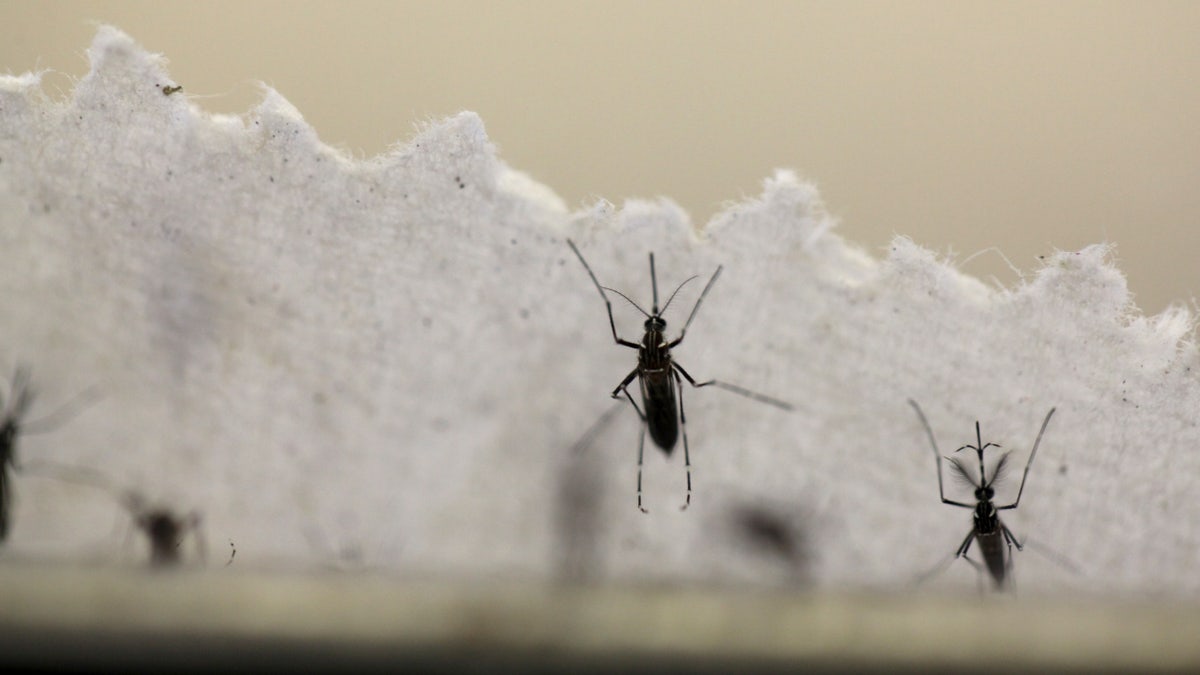
Aedes aegypti mosquitoes are seen at the Laboratory of Entomology and Ecology of the Dengue Branch of the U.S. Centers for Disease Control and Prevention in San Juan, Puerto Rico, March 6, 2016. (REUTERS/Alvin Baez/File Photo)
On Nov. 20, 2015, the World Health Organization warned the spread of Zika virus in Brazil might be responsible for a surge in the birth of babies born with tiny heads and underdeveloped brains.
On Friday, almost a year to the day from that first warning, experts who advise the UN’s global health agency on Zika will grapple with the question of whether this most unusual of outbreaks still constitutes a crisis.
It won’t come as a huge surprise to the global health community if the experts tell WHO Director-General Margaret Chan that Zika, while still alarming, no longer meets the criteria for a “public health emergency of international concern,” as its known in the agency’s vernacular.
But some observers worry that if the WHO downgrades Zika’s status, an outbreak that continues to bedevil scientists and threaten the health of developing fetuses will slip further down the priority list for research funding. They are also concerned that efforts to detect and report spread around the world will ease.
More From Stat News
“The international response to Zika has been lethargic, and if WHO called off the global emergency it would provide reason for governments and donors to pull back even more,” said Dr. Lawrence Gostin, an international health law expert at Georgetown University.
“That would be a recipe for the very lack of preparedness the world has seen time and again with infectious diseases.”
When the WHO’s expert panel on Zika first met on Feb. 1, it quickly urged Chan to declare Zika a public health emergency of international concern.
That designation meant that recommendations from the WHO aimed at curbing the spread of Zika, minimizing economic impacts or promoting collaborative research carried more clout among member states.
Chan has declared four global health emergencies during her tenure — the 2009 H1N1 flu pandemic, setbacks to polio eradication efforts, the West African Ebola outbreak and Zika. Two other expert panels have advised against the declaration of public health emergencies for the outbreak of the Middle East respiratory syndrome virus, or MERS, and this year’s challenging yellow fever outbreak in Angola and the Democratic Republic of Congo.
Chan has never gone against the advice of an emergency committee.
Back when she declared Zika a global health crisis, the world was seized by tragic pictures of Brazilian babies with strangely misshapen heads. Reports suggested that 6,000 or more infants in that country alone had been born with the devastating condition, known as microcephaly.
The link to maternal Zika infection during pregnancy was suspected, but not proven. Scientists from around the globe set to work trying to figure out how a virus spread by mosquitoes could destroy fetal brains in the womb — and what percentage of women infected in pregnancy would give birth to an affected child.
An impressive number of scientific papers charting how the Zika virus destroys fetal brain tissue have been published since then.
But the question about how often this happens still remains to be answered. Rather than becoming clearer, the picture has become more blurred as time has gone on.
The early estimates of upwards of 6,000 affected births in Brazil have been revised sharply downward, to about 2,100 at last count. And predictions that waves of affected births would follow in Latin American countries where Zika spread after Brazil haven’t materialized to nearly the same degree. Of the 25 other countries that have reported cases of Zika-related birth defects, Colombia has recorded the second highest tally, 57. In most countries, the cases are in the single digits.
In fact, 92 percent of the recorded cases of Zika-related birth defects have been reported by Brazil.
Experts are at a loss to explain why there have been so many such births in Brazil and so few, relatively speaking, so far in other countries.
Abortions may be ending some affected pregnancies, but that kind of effect is very hard to capture, experts admit. Researchers are looking at whether some other factor present in Brazil contributed to the high numbers there. But these answers will take time.
The leadership of the Centers for Disease Prevention and Control has repeatedly called Zika the most complex emergency response the Atlanta-based agency has ever mounted. Scientists from many of the CDC’s centers have been called on to contribute — everyone from those who study birth defects and mosquito-transmitted pathogens to those who study diseases spread by sex.
“We have so much more to learn and so much more to do. But this mosquito” — Aedes aegypti, which transmits Zika —“and this virus doesn’t stop for us to finish the studies,” Dr. Anne Schuchat, the CDC’s principal deputy director, said earlier this week.
Schuchat sidestepped the question of whether she thinks Zika is still a global health emergency. Technical deliberations at the WHO would answer that question, she suggested.
But regardless of the outcome of Friday’s deliberations, she said the world must keep its eyes on Zika.
“This is a virus that can cause irreversible, catastrophic problems when certain women in pregnancy are infected,” Schuchat said.
“This needs to stay in the public arena so that people planning travel can prepare appropriately and so that we in the global community can re-enforce efforts to learn and act and protect pregnant women, wherever the virus is spreading.”
